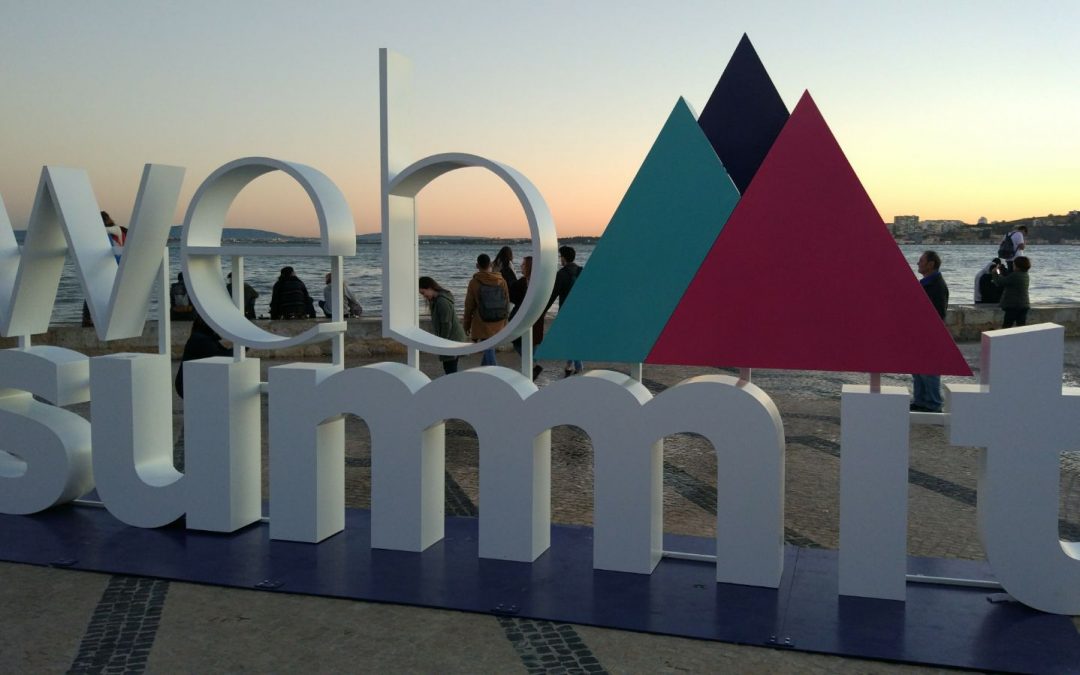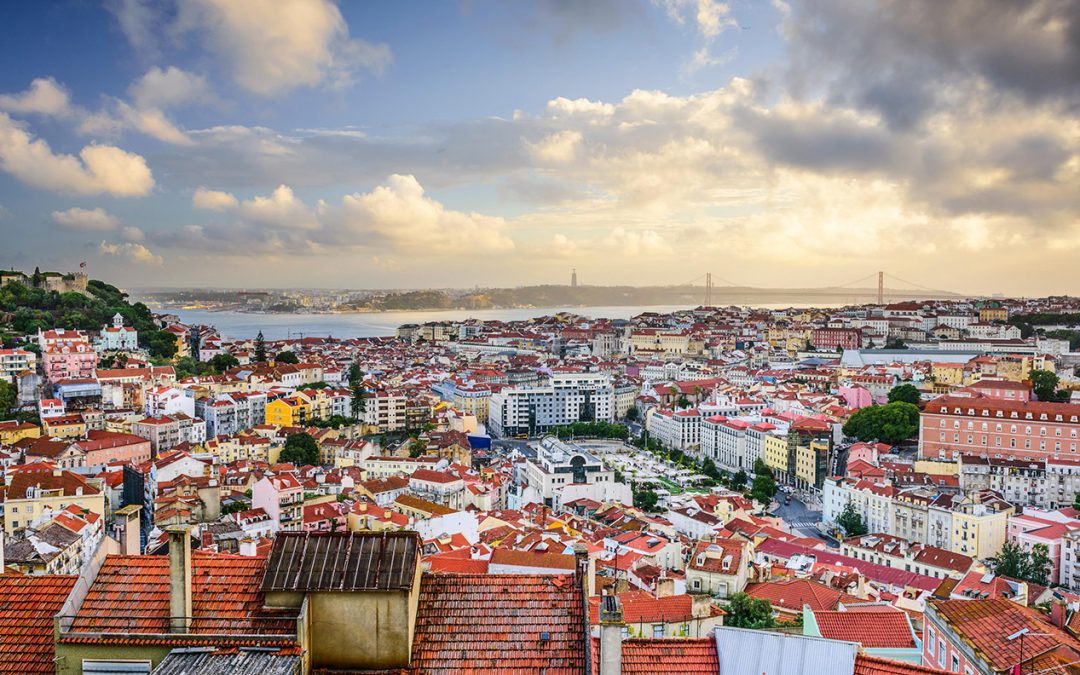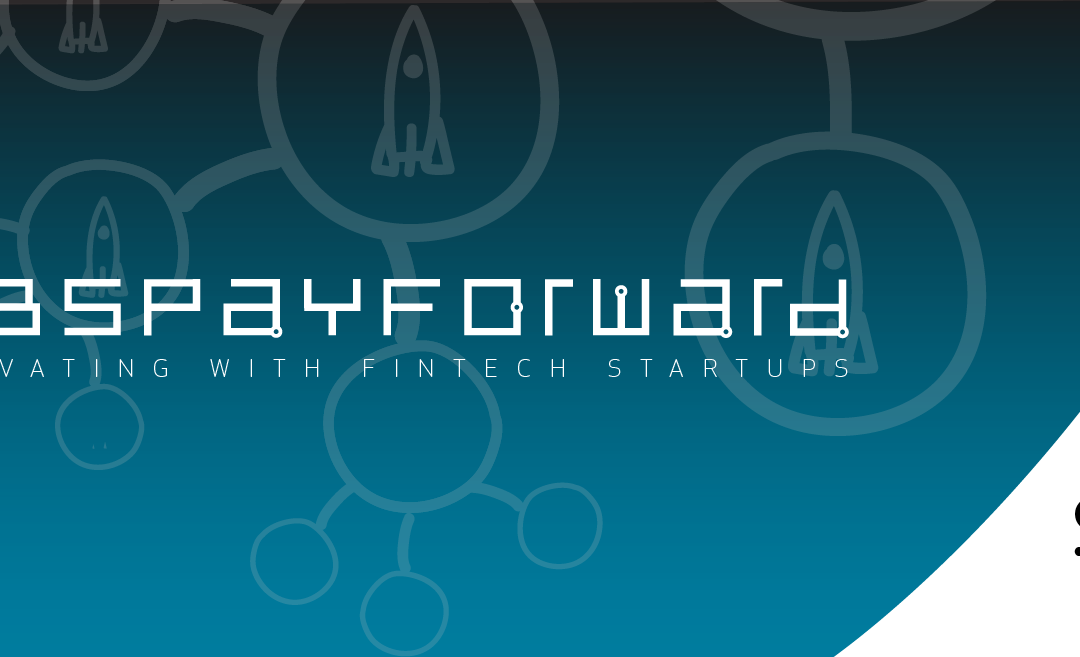
by amalienaustdal | Nov 21, 2017 | Startups
The week before last, more than 2,100 startups from across the globe gathered at Web Summit. 150 of those were Portuguese startups selected for the Alpha startup programme. To best prepare them Startup Portugal and Web Summit, with the support of Beta-i, organized the Road2WebSummit, covering topics such as networking, building relationships with corporates/investors, and how to pitch your startup to a variety of people.
We checked in with the Alpha startups to hear about their experience at the Web Summit. Whether they achieved what they wanted to achieve, key moments and highlights from the week.
The founders of the alpha startups had similar experiences. The exposure created great opportunities for new customers, clients, investors and potential collaborations, with several of the startups having ongoing conversations to further explore these opportunities. The entrepreneurs recognized the importance of thorough preparation, specifically defining where to focus their efforts and the importance of nailing their pitch.
Aquaponics Iberia
Aquaponics technology uses a combination of aquaculture and hydroponics to produce food more sustainably. This creates a unique symbiotic ecosystem producing fish, vegetables, and fruits.
When applying to be an Alpha Startup, Aquaponics did not have high expectations. Their goals were to network and find new investors for their urban aquaponics project. Participating in the Road2WebSummit helped them prepare ‘with much more clarity and focus’, says Joao Cotter from Aquaponics. For them, the key learning from Road2WebSummit was understanding the need to differentiate their presentation. This lead them to build a small demo of the aquaponics system specifically for the Web Summit, which proved a winning strategy. The days of the Web Summit were hectic, navigating their way between media interviews, investor talks, presenting their startup solutions and talking to potential partners amongst other startups. The positive media attention from TV, print, and radio was beyond what they could have hoped for. The results of the Web Summit were new clients, new partnerships and a consolidation of their position as pioneers in the Portuguese market, yet they did not obtain the funding they were looking for. Yet.
Mater Dynamics
Mater Dynamics develops nanosensors to monitor environmental variables that affect products and processes, a smart sensor working without batteries to pass information such as temperature, pressure, and humidity.
Their main motivation for attending the Web Summit was to present a new version of their product, QStamp 2.0. To demonstrate the potential of the solution, prioritizing potential clients in their target group. Taking part in Road2WebSummit prepared them with a better understanding of how to leverage their resources during the intense week. Maybe most importantly, it forced them to practice different pitch versions for different audiences and with different lengths (30 seconds, 1 minute and 3 minutes) to choose the best format depending on their audience. At the summit, they discovered potential R&D collaborators with companies possessing complementary technologies. The Web Summit is still ongoing for them, as they have successfully scheduled meetings with potential clients and investors, and the follow-up work is now taking place. From this, they hope to unlock novel geographies for their product and find new investors, in line with their growth strategy.
NeuroPsyCAD
NeuroPsyCAD is supporting early and accurate neuropsychiatric diagnosis using medical imaging and artificial intelligence.
Their expectation for the summit was to expand their network, specifically gathering contacts in new countries. To meet new companies to partner with and potential investors. During Road2WebSummit they were urged to define certain milestones for what to achieve during the summit. Ricardo, the CTO, summarised their goals as: ‘contacting at least 3-5 investors per day, exchanging at least 10 business cards (with people relevant to their field) per day and inspect 5 pitches per day’. The preparation at Road2WebSummit helped them nail their pitch, which was especially important on the day they had their own booth. This day was their highlight of the Web Summit, as they were being contacted by interested people throughout the entire day. Ricardo says ‘it made us believe even stronger in the project. We had some very interesting exchanges and are in on-going talks about new opportunities and potential collaborations as a result of the summit’.
YouBeep
YouBeep is a mobile shopping and checkout solution, which reduces checkout time while enhancing the overall customer experience.
This year was their second time exhibiting their solution at the Web Summit and second time participating in the Road2WebSummit. This year, their focus was on obtaining exposure and engage with key people. They exceeded the expectations. The second time was a charm, mainly because they had done their homework and was better prepared. According to the CEO, João Rodrigues, ‘the Web Summit is a great initiative. It is providing exposure to the Portuguese startup scene and showcasing what we have to offer’. He believes that a big challenge for Portuguese startups is that the market is too small, forcing startups to go global from the very beginning. The summit provided them with great networking opportunities and they hope that new business will result from some of the conversations they had during last week.
Smartidiom
Smartidiom offers innovative multilingual services, helping global organizations and brands to grow and achieve international success.
Their purpose at Web Summit was to promote their new platform, validate it, form partnerships and establish connections with various enterprises for future collaboration, and reinforce their position in the market. The Road2WebSummit helped them understand the need to focus on specific goals, as it is easy to get distracted in the large and crowded space. Tiago, Director of Operations, asserts ‘we had our contacts, presentations, pitches and overall team organization well prepared, while still leaving some time available for a few decisions “on-the-go”.’ Partaking in the summit provided them with great feedback, new ideas, and access to investors that might help them reach their pending goals. The most significant impact is the number of follow-ups that may convert into future revenue. This year, they were more specific about who, what and when they wanted to target at their stand and during the remaining days, which meant they managed to establish the right contacts.
SmartLunch
SmartLunch creates every product you would need to transport your lunch from home to the office, school or anywhere else, from boxes to bags to bottles.
SmartLunch aimed to broadcast their brand and products to an international audience, to attract interest from potential actors willing to sell them overseas or include them on their e-commerce platform. Moreover, to present their new app and find investors, mentors, and partners interested in joining them on their next steps. Similar to the other startups, they understood that preparation is key. To practice their speech and be able to adapt it to whoever is in front of them, to anticipate their needs, and to network, network, network. They asserted that you don’t know who will be valuable to you in advance, so it’s important to meet a variety of people. The Web Summit lead to ongoing conversations with potential investors and interaction with partners interested in selling their products across five new markets.

by amalienaustdal | Oct 25, 2017 | Corporates, Investors, Startups
The Web Summit, and with it an exciting week, is about to take Lisbon by storm. The entire city is preparing to welcome 60,000+ attendees and 1,000+ speakers from 160+ countries. In addition to the tech conference, there are countless satellite events, such as workshops, meetups, and parties.
The week can be overwhelming, there are too many cool events, interesting people and new business opportunities, and not enough time to tend to all of them. It can be difficult to navigate through all that’s going on. For you to get the most out of your stay in Lisbon we have compiled a list of all the events happening during the week.
The type of events vary widely. Some are meant to give you an introduction to the city and the Portuguese ecosystem, such as the Street Art Tour, Secret Food Tours and Lisbon Startup Tour. Some offer meetups and workshops on specific topics and interests, allowing you to learn, develop your skills, and broaden your perspectives, such as Public Speaking Trainings and ntop and Wireshark Users Group Meeting. And some are just meant for you to hang out and party, such as WSCO 17 Web Summit Chill Out and Funky Party by La French Tech and Beta-i.
Go ahead, take a look at the various events happening in Lisbon. They present endless possibilities for networking to create global connections. All you have to do is decide which one best fits your needs, take note and show up. Maybe we’ll see you there?
[contact-form-7 id=”1833″ title=”Beta-i Guide: Events around Web Summit”]

by amalienaustdal | Oct 10, 2017 | Startups
In the Fintech world, Portugal is recognized for having one of the most advanced payments systems. This is a result of 30 years of open collaboration between the country’s key financial players, through the creation of SIBS – the Portuguese driver of Fintech innovation.
In January 2018, new European regulation on Open Banking comes into force, bringing new challenges to the banking ecosystem. So, it’s only natural that to face these challenges the spirit of open collaboration is again put to great use. To do so, SIBS is working alongside the main banks in Portugal to provide an “Open Banking API”.
The good news? They are looking for global, Fintech startups to take part in the creation of one of the most ambitious Open Banking ecosystems through our second edition of the SIBSPAYFORWARD Accelerator.
For the second edition, we will select startups with business & consumer solutions in Open Baking context, who are able to incorporate the development of the platform being implemented by SIBS.
Applications are already open for startups with a stable functional prototype and a customer base. So, why should you apply?
- Data: SIBS is in charge of the majority of financial transactions in Portugal due to their role in managing the ATMs and a part of the POS systems.
- Access: By collaborating with SIBS you can have access to the entire Banking system at once.
- Collaborate with industry leaders: An amazing opportunity to work with one of World’s top Fintech innovators.
- Mentors: work with industry experts and true decision makers that will guide you through the complex world of finance.
Almost convinced? Then, check out our website to learn more about the program, the mentors, and last years edition. Make sure you apply before the 15th of December!

by amalienaustdal | Oct 10, 2017 | Corporates, Investors, Startups
Frank Borman, a retired NASA astronaut, once said: ‘exploration is really the essence of the human spirit’. Now, you don’t have to go all the way to space for exploration. There are plenty of wild and unexpected adventures made possible by a short flight. It seems like more and more people share the beliefs of Frank Borman. Nowadays, more people are traveling, going to far-away destinations, whilst seeking more immersive experiences.
More than ever, we are looking for ‘exploration’ and not just ‘holidays’. It is changing the face of the travel industry. New niches are being created, with new solutions entering the market. Three core themes driving the disruption of the industry are demand for sustainability, future traveler’s needs and innovation.
Sustainability
Not only have we become more aware of making our travels a lasting memory, we are also seeking to make a positive impact on the destination we travel to. The travel industry has become the largest industry worldwide, increasing our responsibility to protect and preserve the places we love to explore. Travelling is associated with a large carbon footprint and the derogation of natural and cultural heritage. As we are becoming more aware of this, travelers are starting to demand green and sustainable alternatives at every step of the journey. Now, 70% of travelers expect companies to demonstrate a commitment to preserve the natural environment. Many local and national economies rely on tourism, yet many are starting to realize the negative impact of tourism. Spain is a prime example of a country struggling with mass tourism. Forcing the nation to take constricted action to reduce the number of visitors in its most popular destinations. Thus, there are many changes being made in the industry; new regulations, innovative technologies and sustainable alternatives to combat the bad rep of traveling as an environmentally polluting activity.
The Future Traveler
Travel is about consuming experiences, and we all want a unique experience tailored to ourselves. Technology is making this possible. In turn, technology is making the needs of the future traveler more complex and higher than ever. We want more out of each experience. Each encounter on the travel needs to be unique, memorable, adventurous, effortless and personalized. The future traveler has technology at their fingertips, with access to personalized information, whenever, wherever. Before the trip, technology allows for a more seamless integration of planning tools for easy booking of hotels and add-ons tailored to your interests. During the trip, the connected traveler can easily navigate their way through the final destination and easily discover the offers around you. As a result of social media, the future traveler is seeking unique experiences, going off the trail for a killer image. It is no longer possible to satisfy the needs of the future traveler without innovating and offering tailored services to the individual.
Innovation
There are many technological innovations entering the tourism industry today. Crowdsourcing sites with reviews and advice make choosing restaurants and experiences easier. The sharing economy gives rise to new options in accommodation, such as Airbnb and Couchsurfing, as well as cheaper transportation and meal offers. Online platforms are making it easier to plan your holidays. Virtual reality is making it possible to experience your holidays before you go, to get a glimpse into what you can expect. Augmented reality can be your personal tour guide, tailoring the guide to your interests instead of a generic group tour. There are countless new innovations entering the market every day, improving our travel experience throughout the journey.
It is not a coincidence, that these three areas are in fact the three core themes covered for the Lisbon Tourism Summit. The Lisbon Tourism Summit is an event dedicated to the tourism industry; its innovators, challenges, and developments. Seeking to inspire, demonstrate new solutions and bring together key players in the industry.
As a final note, I will leave you with another quote. Some food for thought.
‘The traveler sees what he sees. The tourist sees what he has come to see” – Gilbert Chesterton.

by amalienaustdal | Sep 28, 2017 | Corporates, Investors
Throughout history, our ancestors have had the urge to discover new and better places. The curiosity to explore has remained, and it seems to be getting stronger and stronger. I was bit by the travel bug at a young age, and have continued to explore the far-flung corners of the world ever since. But, a lot has changed since my first trip. As technology advances and costs are lowered, unexplored destinations appear closer, making it easier than ever before to jet off for the weekend.
With 8 million people traveling every day, travel has become commonplace, causing the industry to evolve quickly. But, there is one thing that is evolving faster: the traveler. Our expectations of travel, before, during and after the trip, are becoming higher and more complex.
Technology at our fingertips
Long gone are the days where you get lost on your travels and drive for ages searching for a place to sleep. Thanks to geotagging and GPS systems, the connected travelers have access to information about the location and everything happening around us. This access to technology is creating more personalized experiences, allowing us to get more out of our travels.
Jungle trekking is replacing beach holidays
Travellers want more active and culturally immersive experiences. Instead of lazy days on the beach, adventure holidays are the new experiences to bring back home. Think jungle trekking, shark diving, and heli-skiing. The same holds for where we choose to spend the night, from ziplining into a treehouse to underwater hotel rooms to hammocks high above the ground. Ecocube is a startup addressing this, by creating a unique experience where you inhabit the nature in a sustainable accommodation.
A quest for tranquility
Social media has given rise to the need for unique and out-of-the-box travel experiences, for the ultimate post on Instagram. However, this need has also given rise to the polar opposite – demand for a true escape. Away from emails and social media, to unplug and recharge. Some take it a step further and sign up for silent meditation retreats to avoid all forms of communication during their travels.
Lost in translation
Communication can often be an issue when traveling. Without a common language, misunderstandings will arise and you might end up eating something you never intended to eat (speaking from experience). Now, technology has advanced so that we can instantaneously communicate, allowing us to get a greater understanding of the people and the places we visit.
Virtual travel
Tourism boards have created virtual spaces to lure new travelers into visiting their countries. Ground Control has developed a virtual reality space for Porto to show new visitors what they can expect. VR allows you to ‘test drive’ your holiday and experience it before you go, to tweak your planning for the best possible holiday. Maybe this is the start of virtual travel in the comfort of your own home?
Travelling has never been easier. So, what are you waiting for?
Pack your suitcases… Next stop: Lisbon Tourism Summit!
The Lisbon Tourism Summit will explore the new needs of the future traveler, and exhibit the startups mentioned above. The Lisbon Tourism Summit is a gathering for tourism innovators from across the globe to address the challenges and developments within the industry. Together with Turismo de Portugal, Abreu, Airbnb, Amadeus, Barraqueiro, Nos and Pestana we will examine the driving forces disrupting the industry. If you want to learn more about future traveling trends, join us.





